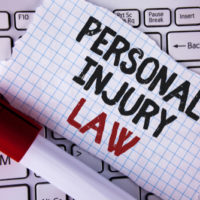What Is Vicarious Liability And Why Does It Matter?

Vehicle collisions, especially truck, bus, and other large vehicle collisions, often cause wrongful death and other catastrophic injuries. In some cases, the financial loss can be staggering.
The good news is that victims are entitled to compensation for all these losses. The bad news is that Florida has one of the lowest auto insurance minimum requirements in the country. Insurance companies are only responsible for damages up to the policy maximum. In many cases, an individual tortfeasor (negligent driver) lacks the coverage for fair compensation.
Often, vicarious liability is the solution to this problem. Florida has very broad third party liability rules. So, another party may also be legally responsible for damages. That gives catastrophic injury victim/plaintiffs an additional source of recovery.
Employer Liability in Port St. Lucie
The respondeat superior (“let the master answer”) rule states that employers are liable for the negligent acts of their employees. This doctrine applies in most commercial cases, such as truck drivers, bus drivers. Uber drivers, and taxi drivers. There are three basic prongs:
- Scope of Employment: The tortfeasor must have been acting in the scope of employment at the time of the accident. This phrase is broadly defined to include any activity which benefits the employer in any way. That includes something like driving an empty truck around town. The free advertising benefits the employer.
- Employee: Similarly, an “employee” is not just someone who receives a W-2 and a regular paycheck. An employee can also be an independent contractor, owner-operator, or unpaid volunteer. The employer controls all these individuals, at least to some extent, and that control is all that’s required.
- Foreseeability: A car crash is almost always a foreseeable consequence, although not necessarily an inevitable consequence, of operating a motor vehicle.
In the unlikely event that respondeat superior is inapplicable, there are other employer liability theories, including negligent hiring and negligent entrustment.
Alcohol Provider Liability in Port St. Lucie
The respondeat superior rule does not diminish individual responsibility for car accidents. Instead, this doctrine forces companies to change the way they do business and do their part to prevent crashes. Florida’s dram shop law serves basically the same purpose. Commercial alcohol provides, such as bars and restaurants, are vicariously liable for the crashes their intoxicated patrons cause if they illegally sold alcohol to the tortfeasor. Examples of illegal sales include:
- Under 21: Alcohol providers have few defenses in this area. Even if the tortfeasor presented a fake ID, especially if it was a State of Florida forgery, vicarious liability may still attach.
- Habitually Addicted: If the tortfeasor was over 21, the victim/plaintiff must establish that the tortfeasor was habitually addicted to alcohol. Evidence on this point includes prior purchases at that establishment and statements made to employees.
Social host liability may be applicable as well, either under the dram shop law or another theory of recovery, such as negligent undertaking.
Owner Liability in Florida
Vehicle owners are liable for damages if they knowingly allow incompetent persons to operate their motor vehicles. Once again, a vehicle owner is in a very good position to prevent a car crash. The owner simply must withhold permission to use the vehicle. Evidence of incompetency includes:
- No drivers’ license,
- Safety-suspended drivers’ license,
- A poor driving record (usually more than one recent at-fault accident),
- Driving in violation of license restriction (g. no night driving), and
- Driving inexperience.
The negligent entrustment rule is particularly important to victim/plaintiffs. Normally, when someone borrows another person’s vehicle, the tortfeasor’s auto insurance company will not cover any car crash losses.
Commercial negligent entrustment cases, such as U-Haul truck crashes, work a little differently. Under the Graves Amendment, victim/plaintiffs must introduce additional evidence in these claims.
Work with Tenacious Lawyers
The tortfeasor may not be the only party that’s responsible for car crash damages. For a free consultation with an experienced personal injury attorney in Port St. Lucie, contact Eighmie Law Firm, P.A. We routinely handle cases throughout the Treasure Coast area.


